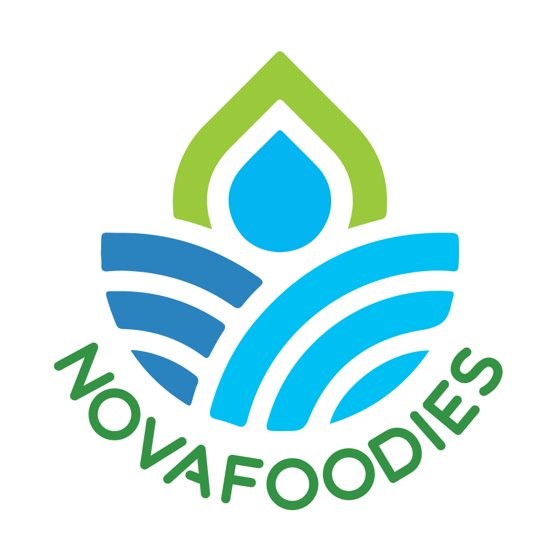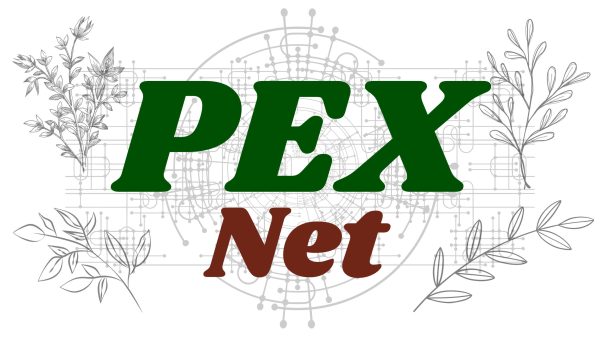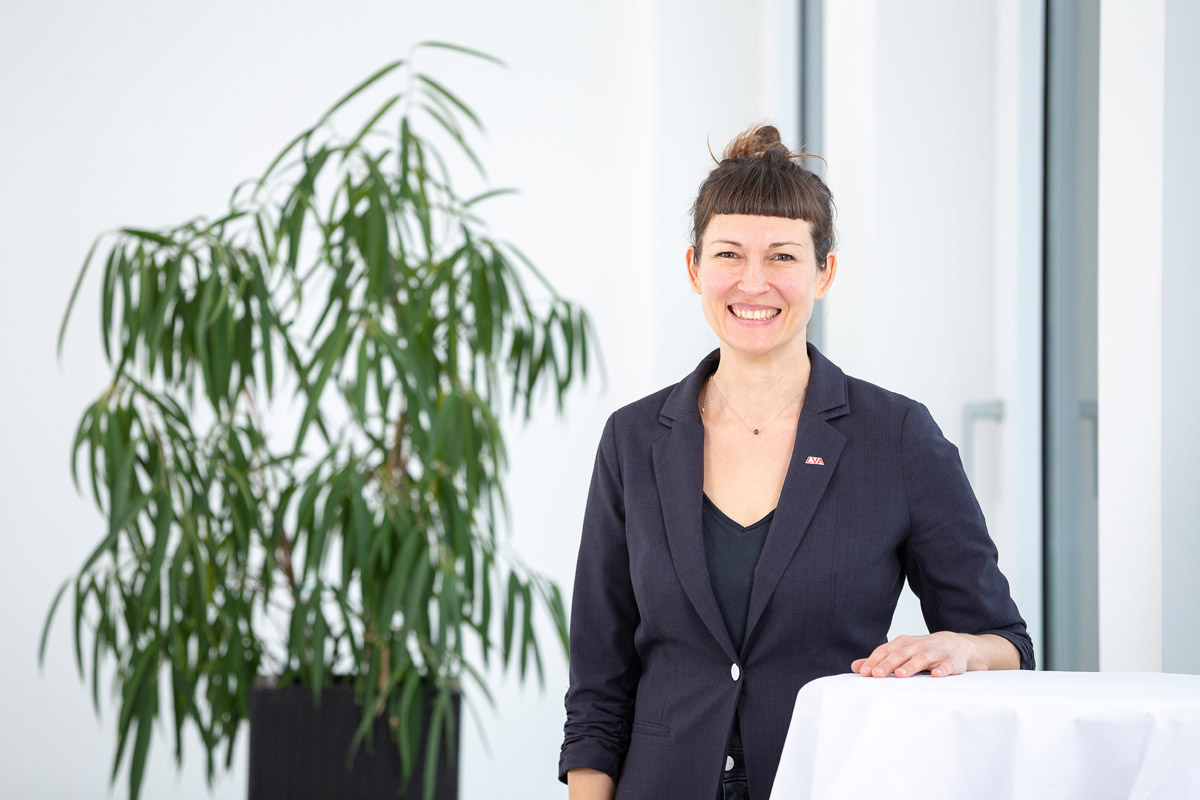Our Innovation Services
ACR (Austrian Cooperative Research)
ACR (Austrian Cooperative Research) is the umbrella organisation of cooperative extramural research institutes in Austria. As a member of ACR, we support mainly small- to medium-sized enterprises in the field of application-oriented research, development and innovation.
It is worthwhile to contact our internal Innovation Agent either online or offline if you have questions about research and development.
Plattform Lebensmittelsicherheit
Food safety is considered one of the central issues of the future. Through the collaboration with the four institutes LVA food testing institute, ofi, OMV VG and AEE INTEC, the bundled expertise is made accessible to SMEs and implemented in the form of applicable R&D.
Individual topics can be presented from an international standpoint, and projects can be made accessible to SMEs at national and European level.
For the institutes, synergies arise in the area of customer support, analytics and in the development of know-how regarding food risks. They establish themselves as the point of contact for questions on applied research and for current solutions in the field of food safety.
SMEs benefit on two levels: Access to the institutes’ pooled problem-solving expertise and thus greater efficiency and needs-based solutions for practical application.
Current Projects
FIELDS

Addressing the current and Future skIll needs for sustainabilty, digitalization, and the bio-Economy in AgricuLture: European skills agenDa and Strategy
The agricultural-, forestry- and food sectors often take up a traditional stance, when it comes to their craft. However, due to the globalization of markets, increasing competition and unstable economic security, they are faced with never before encountered challenges. In addition, demand for food and feed is on the rise, while climate change continues to be insufficiently addressed. The change from current agricultural-, forestry- and food industry models, to sustainable strategies is complex and difficult. A farmer/worker has to take up a new role, and is now tasked with bio-resource management, in addition to other responsibilities.
For the development of a strategic guide to sustainability, it is important to gather current information about skill needs and qualifications in the fields of bio-economy, sustainability and digitalization. This could reveal an opportunity to make agriculture, forestry and the food sector in Europe competitive and sustainable in the long term.
The FIELDS project was initiated to address afore mentioned issues, together with 30 Partners across 12 European countries, led and coordinated by the University of Torino.
The multi-Stakeholder approach begins with an inquiry into current and future skill needs of workers in the agricultural, forestry and food sectors. From this, a strategy will be developed to address detected needs. Newly created FIELDS training material and lessons will be evaluated and provided to schools and VET providers.
Due to cultural and economic differences inside the EU, outputs and strategies of the project will be adapted to 7 different EU countries. Concrete and practical initiatives will be developed. These will be designed akin to European and national guidelines of the respective countries. The lessons will be structured in a modular and decentralized way, allowing for personalized curricula.
The aim of this project is to proactively meet future requirements of jobs in the agricultural, forestry and food sectors.
The FIELDS project is part of the Erasmus+ program and is co-financed by the European Union. The project is set to last from 1.Jan.2020 to 31.Dez.2023. Other involved Austrian partners are Agrarplus and BLT Wieselburg. LVA is responsible for the dissemination action plan and for a certain aspects of the training content.
VIRTUALITY
Virtual reality training for employees in the food industry
The VIRTUALITY project is co-financed by the European Erasmus+ program and coordinated by ANIA (French association of the food industry). The consortium consists of French (OCAPIAT, EVAVEO), Belgian (ALIMENTO) and Austrian (LVA) project partners. The aim is to develop professional virtual reality training courses specifically for employees in the food sector.
Content of VIRTUALITY:
In order to increase the attractiveness of work areas in the food industry and to cover the need for currently required skills through appropriate training, vocational training must be further developed and modernized. It is important to include the needs and inclinations of growing learners. This is where virtual reality training comes in: this innovative training method meets the need for professionalism in several ways: the training time is reduced, the risk of accidents is reduced, and the innovative and attractive aspect of the tool/instrument means that users respond well to it. Virtual reality training can make it easier to get used to a work environment by better understanding and mastering the challenges that arise.
Goals of VIRTUALITY:
The development of innovative digital training tools for employees in the food industry and the adaptation of vocational training and training to existing and future needs of the labor market.
To achieve an increase in the attractiveness of training through virtual reality in order to increase the know-how level of the employees.
Support and promotion of employee mobility – internally, but also at European level.
Supporting the development of safe and sustainable practices.
The target groups of VIRTUALITY:
The project is primarily aimed at employees and companies in the food sector: the results of VIRTUALITY should offer them a new way to accelerate their training and further develop their employability, especially in technical positions. Training centers that offer training for the food sector also belong to the target group, since the results of VIRTUALITY can be offered by them as new training methods that can be integrated into the current curriculum.
I-RESTART
The Pact for Skill roundtable raised several issues the Agrifood sector is facing, and identified potential ways of overcoming them: upskilling and reskilling workers; intersectoral skill transfers; increased attractiveness of the sector to youth; digital transition; partnerships between learning institutions and companies.
The I-RESTART project aims to reskill and upskill the workforce in the agrifood and veterinary sectors, retrain the employees leaving the heavy industry to hire them in the agrifood sector, and engage some students that want to enter the agrifood labor market, to improve their digital skills and facilitate the transition to the Green Deal initiative.
To reach these objectives, I-RESTART will facilitate inter-sectoral and intergenerational skill transfers through the adoption of an innovative micro-credentials methodology that will provide inclusive, flexible and engaging work-based patterns with mentors, while also opening the ecosystem to external workers.
The project, complementing the FIELDS Blueprint on agriculture and forestry, will provide the tools to tackle the future challenges with the offering of 10 occupational profiles (EQF 4, 5 and 6) for a total of 3200 hours of training and 3600 hours of work based learning. In total 16 trainers and 120 trainees will benefit from the pilot training in 8 countries, and 40 students will complete the work-based learning scheme that includes advanced entrepreneurial skills and involves 32 mentors.
The 29 partners consortium from 11 countries will identify skills needed (including urgent ones) and gaps, create occupational profiles, detailed curricula, design European strategies and 10 country roadmaps to reflect the country's needs while keeping EU quality standards (ESCO, EQAVET) to address the mobility of learners through Europe.
A strong connection will be established with the Pact for Skills initiative, in order to make useful content for the members that will implement the pact.
WASTELESS
The WASTELESS project aims to reduce Food Loss and Waste (FLW) across the European Union. Food wasted in developed countries is comparable to the sum of all foodstuff produced in sub-Saharan Africa, therefore action regarding the reduction, redistribution and repurposing of food waste is urgently needed. WASTELESS will (1) develop innovative tools and methodologies for FLW measurement and monitoring, (2) devise and recommend harmonized methodological Framework for FLW quantification, and (3) develop a decision support systemic Toolbox targeting all food value chain stakeholders. This should lead to an reduction of FLW by at least 20% annually after the project’s end. WASTELESS will make use of the ‘Farm2Fork’ strategy to reach the targets of the ‘European Green Deal’, that aim to reduce the amount of food waste by half per capita at retail and consumer levels by 2030. In addition, outcomes from this project will contribute to the reduction of greenhouse gas emissions over the next decade, contributing to global climate change mitigation strategies.
PLANEAT
PLAN’EAT (Food systems transformation towards healthy and sustainable dietary behaviour)
Across the world, dietary patterns are shifting towards dominant food consumption patterns and eco-agri-food systems that have high health, societal and environmental costs. Without a significant change in current trends, noncommunicable diseases (NCDs) will continue to rise while the quality and quantity of available natural resources will decline. As dietary behaviour is a strong determinant of food consumption, it represents a key lever for action to transform food systems and vice versa. The main objective of PLAN’EAT will be to foster the transition to HSDB(healthy and sustainable food behaviour) through an in-depth understanding of its underlying factors and drivers and through the design of effective recommendations, tools and interventions targeting food system actors.
PLAN’EAT will aim at implementing an evidence-based, multi-actor, multi-layered and systemic approach at macro (food system), meso (food environment) and micro (individual) levels. Various socio-cultural and geographic contexts will be considered by implementing 9 Living Labs (LLs) in different European areas, 4 pan-European food value chain Consultation and Working Groups (CWGs) and 1 Policy Lab. In the LL, the dietary patterns of specific population groups will be mapped and ‘monetised’ in terms of environmental, socio-economic and health impacts through True Cost Accounting (TCA). The factors influencing dietary behaviours with the highest potential for change (i.e., high impact behaviours) will be analysed. The knowledge and scientific evidence obtained will feed into the co-design of more than 10 effective solutions adjusted to different contexts and end-users, corresponding to PLAN’EAT Project Results (PR).
LIKE-A-PRO
LIKE-A-PRO aims to facilitate sustainable and healthy diets by shifting promising alternative proteins and products from niche to mainstream - making them more available, accessible, and acceptable to all population groups (young people, adults, elderly, vulnerable groups - of low socio-economic status, ethnic minorities, living in rural locations) and everywhere (urban, peri-urban, and rural areas). This will be done via development of 16 products with ingredients from 7 protein sources (sustainable, EU-based, of improved taste & texture) and via FE solutions for alternative protein promotion, co-designed & explored with ≈ 24,430 citizens & community actors across Europe.
To reach this objective, the LIKE-A-PRO consortium involves 42 entities - representatives along the entire alternative protein value chain (protein producers, ingredient & product developers, culinary centres, food clusters), scientists and market & communication experts. Furthermore, the scope will be beyond the consortium via direct engagement of citizens, industry, processors, retailers, food services, cooks, and caterers.
The project is inclusive of 7 promising alternative proteins (2 plant-based, 1 microbe-based, 1 ocean-based, 2 fungus-based, 1 insect-based) with different development status, grouped into 3 development categories:
- Market available products - These market available alternative protein products, which are still a niche, need better understanding of their place in the FEs and determinants of related consumer choices.
- Ongoing developments – Their regulatory pathway has been cleared (e.g., no need for authorization by the European Food and Safety Authority - EFSA), yet they need R&I support to become industry + market ready.
- Future trends - These future trends, which are at early stages of development, need support to evaluate their technical, economic, market and regulatory feasibility, including consumer testing.
NOVAFOODIES

Demonstration of innovative functional food production systems based on a more sustainable value chain of marine and freshwater raw materials for conscientious European consumers.
Overfishing and the associated effects on the ecosystem have been a constant topic in the scientific discourse on environmental protection for many years. In many areas, extreme interventions into the natural balance, the so-called trophic levels, take place. These levels represent the natural system of producers (algae, plants, microorganisms, etc.), primary consumers (consume producers, e.g. surgeonfish, parrotfish, etc.) and secondary/tertiary consumers (consume consumers, e.g. sharks) into one food pyramid. If a certain species from one of these stages is overfished (e.g. a consumer species), severe overgrowth of the producers (e.g. algae proliferation) and death of secondary or tertiary consumers can be the consequence.
The interdisciplinary HORIZON-IA project "NOVAFOODIES" deals with this topic: through innovative breeding of aquatic organisms, the so-called "Integrated Multi-Trophic Aquaculture" (IMTA), the cultivation of different organisms is to be promoted in the same habitat. With this new type of fish production, which has been discussed for a long time, the "natural" balance is artificially set. As part of NOVAFOODIES, IMTA is being tested in seven different case studies in Europe, Israel and China.
Furthermore, research is done on innovative food and packaging production methods, (i) new products made from seaweed and fish will subsequently be ready to successfully enter the market and (ii) products previously regarded as waste are recycled and valorized, e.g. as nutrient-rich fish feed.
As part of the project, great importance is laid on food safety in the field of fish farming/aquaculture and on enabling complete traceability. This ensures that only high quality products are produced and placed on the market, while sustainably promoting the survival of all aquatic organisms.
NOVAFOODIES is coordinated by the Spanish research institution IDENER and consists of 28 consortium partners from Europe, China and Israel. In the project, the food research institute (LVA) will primarily be involved in the development of training materials, seminars, workshops and (online) courses, in order to familiarize cooks and food producers with the newly developed foods.
Microplexfood
The CORNET project "Microplexfood" was launched to determine the presence of microplastics in complex foods. Austrian (ACR Institutes ofi and LVA) and German partners are working on an innovative way to analyze plastics in foods without changing their shape or other properties. This should make it possible to assign the polymer particles to their specific type of plastic and a give information about their shape. With the help of these characteristics, detailed statements can be made about the possible origin of the particles, the route of entry and the possible effects on the environment and humans.
Microplexfood is a successor to the Microplastic@food project, which investigated the microplastic content of simple foods such as drinking water, salt, sugar, clear juices and the surfaces of foods.
The follow-up project will now tackle more complex structures, such as fish, meat and meat products, cloudy juices, milk and dairy products, baked goods, etc. These foods are considered "complex" because they have one or more of the following characteristics: poorly soluble/not soluble in water, made up of several components, or a stable network of compounds.
The particles are analyzed using state-of-the-art equipment that combines microscopy and FTIR measurements.
The aim of the project is to successfully develop a solid analysis method for microplastics. This will make a decisive contribution to determining the level of microplastic exposure in food in the future.
SecureFood

SecureFood adopts an integrated, systems-thinking approach that acknowledges and embraces the complexity of food systems, addressing them as an interconnected network of actors, elements, activities, processes, infrastructures, and essential services related to the production and delivery of food. Based on this approach, it brings together, as consortium partners, multiple actors of the food supply chain itself, such as producers, food and beverages industries retailers and consumers, but also actors supporting the functioning of the supply chain, such as bulk carriers and road transport carriers. The actors network also includes Ministries and entities operating under their auspices responsible for coordinating national resilience-building efforts. The ultimate goal is to address the food security challenges, by creating an ecosystem of scientific knowledge, collaborative processes, and digital tools.
MICROBIOMES4SOY

The transition to food systems based on plant proteins is required. The MICROBIOMES4SOY project aims to make food and feed systems more sustainable and healthier for animals, humans and the environment through the use of microbiomes in soy production. The aim of the project is to support the transition to plant-based protein sources in line with the “Transition Pathways” defined by the EU by taking a comprehensive look at microbiomes along the food and feed chains. With the help of all actors in the food system, a significant contribution will be made to achieving the priorities of FOOD 2030 and the UN sustainable development goals.
Microbiomes play a key role along the entire food chain: from primary production, where microbes improve plant growth and health, food production based on microbial processes, to interactions between animal/human microbiomes and host health.
MICROBIOMES4SOY focuses on the model system soybean as an important protein-rich crop. The project will develop second generation microbiome applications that improve plant productivity, nutritional value, and safety of soybean seeds. This will be tested under different environmental conditions. In addition, the effect of a dietary intervention based on soybean protein will be tested, the effects on the human gut microbiome will be investigated and microbiome-based dietary recommendations will be developed. The project will also develop microbiome-based solutions to develop novel feeds for aquatic use and determine their effects on the fish gut microbiome.
The MICROBIOMES4SOY consortium consists of 18 partners from ten countries contributing complementary expertise in soil, plant, human and animal microbiomes, bioinformatics, modelling, crop production, aquaculture, food/feed production, food systems mapping and scientific communication.
Current ACR-Projects
LEIFS
For menstruation sanitary products there are currently no applicable specific legal requirements and no European Standards to evaluate the safety of these type of products. For traditional disposable products, first approaches do exist, however, these concepts cannot be applied cross-nationally. For lots of innovative reusable menstruation sanitary products, no tests exist to measure and assess their risk.
The call to action for tackling this topic has been done through the ISO by creating a new working group – with the aim to publish a standard for safety assessment for menstruation sanitary products. This is where our contribution enters.
The project proposal „LEIFS“ wants to provide a scientific basis: in the framework of the project, methods for assessing the product safety will be developed – hereby we will also give input for the ISO standard working group.
For the creation of “profiles of requirements” and for the development of an assessment strategy we (project partners: Lebensmittelversuchsanstalt, OFI (Österreichisches Forschungsinstitut für Chemie und Technik) and IWI (industriewissenschaftliches Institut)) hope for a broad stakeholder participation (producers, distributors, raw material providers).
Project content:
- Definition of profiles of requirements for the safety assessment of menstruation sanitary products
- Development of a testing strategy for the safety assessment of menstruation sanitary products (chemical safety, microbiological safety, safety of reprocessing)
BioProfit
BioProfit is developing an economical process concept for processing fermentation residues using liquid separation and membrane distillation. The liquid phase is cleaned and recycled, and high-quality fertilizers and humus are produced. The carbon stored in the humus is withdrawn from the CO2 cycle, which means that CO2 certificates can be sold. The ARGE Biga-Net is expanded to include the new members ZFE, LVA and AEE Intec, as well as numerous competencies (module digestate treatment), which significantly strengthens the RDI service range for biogas plant operators and plant builders.
MicroPic
The focus of the strategic ACR project "MicroPIC" (short for Microscopy For Plastics In Cereals) is the development of correlative, imaging and spectroscopic methods and corresponding workflows for the detection of micro- and nanoplastics in cereal plants using (electron) microscopic techniques.
This is intended to create the opportunity for existing and future customers and research partners, among others, from the economic fields of
- Agribusiness
- Food production
- Plastic production
- Pulp processing
to give access to the developed methods and to provide new characterization methods that can efficiently and accurately detect and show the presence of problematic particles in a spatially resolved manner. At the end of the project, the developed investigation techniques should be transferred to the method portfolio of the ZFE.
The intended project cooperation with the Research Institute for Grain Processing (ÖMV-vg) and the Food Research Institute (LVA) also enables information on the influence of micro- and nanoplastics on changes in the consistency of grain products, such as flour and dough, to be generated.
The experimental design envisages adapting and optimizing the methodology with regard to the sensitivity and detectability of plastic particles in a biological matrix by deliberately introducing labeled micro- and nanoplastics into the nutrient cycle (soil or nutrient solution) while growing the cereal plants to be able to follow the uptake of the particles in the plant during growth from the roots to possibly the grain.
Micro- and nanoplastic pollution is irreversible and causes significant environmental damage, with serious consequences for living beings. Although comprehensive restrictions are being issued or are at least planned across Europe and worldwide, the scientific work on the subject is by no means complete. The reasons for this sometimes lie in the lack of suitability of existing characterization techniques for micro and nanoplastic particles and in the low level of networking between various thematically involved sectors. The MicroPIC project, through its cooperation partners, tries to take this fact into account and to develop contributions to this extremely socially relevant topic.
PEX-Net
 The market for plant extracts is developing dynamically. For this market, required RDI services are developed, including the production of extracts and their optimisation (experimental procedure and analysis). A laboratory plant for extraction with
The market for plant extracts is developing dynamically. For this market, required RDI services are developed, including the production of extracts and their optimisation (experimental procedure and analysis). A laboratory plant for extraction with
n-butane as a solvent is purchased. Quality parameters are determined for the obtained extracts and the result
s will be provided by means of a database.
The gained expertise will be made available to Austrian SMEs with the help of a one-stop shop on www.pexnet.at.
In addition, scientific publications or reports will be published in order to gain international consideration.
To Webpage: www.pexnet.at
Any questions? We are happy to help.
